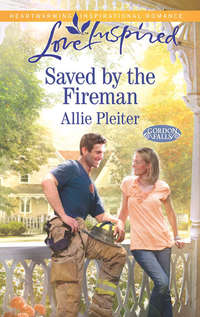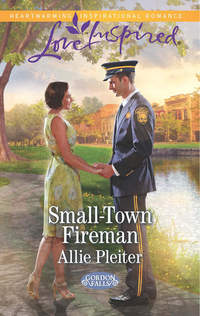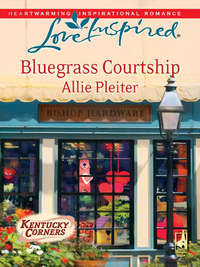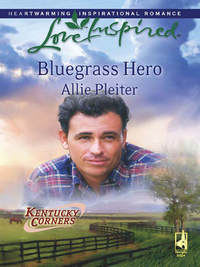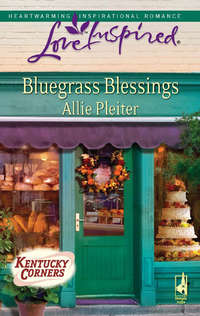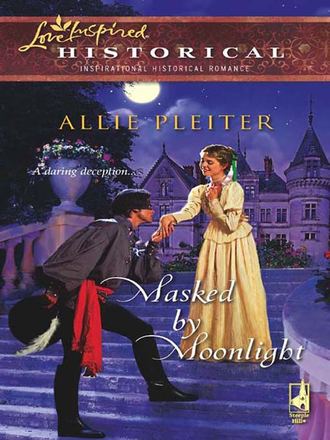
Полная версия
Masked by Moonlight
Matthew gazed at her, a sudden sympathy filling him. “I would like that very much.” Yes, very much.
She broke the spell, picking up the pace again, a bit flustered. “I’m sorry. I don’t know what made me say that.”
“I do.” It was Matthew who stopped this time. “You’re much different than he. But people lump you together just the same. I’ve been lumped together with my father for ages, and we couldn’t be more different. Yet everyone assumes I’m just like him. I have to admit I don’t always enjoy the comparison.”
“So you understand,” she murmured quietly, but said no more.
Chapter Six
It seemed ages before the portly soprano and her equally portly tenor husband ended their first act. Matthew wondered how the usually fidgety Stuart could sit transfixed by such music, but he was clearly enjoying himself.
“Today’s edition, Peach,” he announced as he pulled a paper from under his arm at the intermission. “I’ll go fetch us drinks.”
Georgia folded the pages directly to the back cover. “Ah, here it is,” she said. She began to read.
Before he could stop himself, Matthew leaned over her shoulder to peer at the headline: Returning by Demand: Another Episode of the Black Bandit’s Adventures. He read on, drawn in despite himself.
“The Black Bandit finished cleaning his sword as the sun dawned over the mountains. Sleep had eluded him that night, as it had many nights of late. The exertion of his battles, the welcome partnership of arm and whip, the song of the sword as it sliced the night air—these things eased his spirits. But lately, even they had failed to give him rest.”
Matthew blinked and stared.
Blinked again. Read and reread, his throat tightening.
It was all there. Again. As if George Towers had somehow crept inside his life. How could someone he’d never met put words to his thoughts with such wrenching eloquence? Towers seemed to understand the solace sought in exertion—but the two of them had never met. Sleep surely eluded many men, but how many understood the art of weaponry such as swords and whips? Who was this man?
Matthew turned away. No, the connections weren’t there. The tension and the sleeplessness must have drawn his nerves too tight.
As he turned back, he saw that Georgia was still entranced by the story. He stared at her, sensing how completely opposite their reactions had been. Matthew wanted to put as much distance as he could between himself and that confounding piece of newsprint. She, on the other hand, looked as if she would crawl into the story if she could.
She must have sensed his stare, for she glanced up. Her eyes had a soft quality, as if she’d been someplace faraway and wonderful. Matthew tried to soften his own expression, but it was too late. She had seen his reaction—the fact registered on her face.
“You’re not fond of the Bandit stories, are you, Mr. Covington?” Matthew swore there was disappointment in her voice.
“No, it’s not that.” He gulped almost instinctively, then groped for some reasonable explanation to give her, wanting to banish the gulf that had just stretched between them. “They’re a bit…overwrought…for my taste.”
“I see.” Her words were cool and clipped.
“I’m sure there are many people who enjoy such tales,” he stated, trying to salvage the conversation. But the damage had been done. Why did she seem to care so much about what he thought? Why did it bother him so to disappoint her? Matthew opened his mouth to say more, then shut it with a sigh, convinced that anything he added would only worsen the situation. Well, Covington, you’ve botched that one thoroughly. Where’s Stuart with those drinks?
Georgia’s hand tightened around the newsprint. She’d wanted him to like it. Which was nonsense, really. He hadn’t enjoyed the first episode, so why should he suddenly relish the second? It was even more effusive than the first.
But she wanted him to like it. Her disappointment was as sharp as it was surprising. She drank her tea in silence while the men found something acutely businesslike to discuss.
She had been sorry when her brother sat between her and Matthew Covington before, but now was grateful to have Stuart between them for the second act. Yet, sure enough, Stuart pleaded yet another crisis once the applause ended, and asked Matthew to see her home. In his usual obliviousness to other people’s feelings, her brother focused solely on his goal: ensuring that Georgia and Matthew saw a good deal of each other. She’d have to put a stop to that soon, favor or no favor.
They spent most of the walk home engaged in forced bursts of small talk, grasping for the close atmosphere they’d enjoyed earlier. It seemed just beyond their reach. By the time they turned the final corner to her house, the gaps of silence grew uncomfortable.
Ten steps farther he stopped. He fiddled with his pockets some more, then looked up at her and said, “Would you…would you like me to read you the episode? You said you enjoyed it so much the other night at dinner. There’s been so much rain, it seems a shame to go inside when the park looks so inviting.” She watched him fumble, trying to cover his all-too-obvious desire to set things right between them. “I suppose we don’t even need to discuss anything at all, just take in the view and…”
“Yes,” she agreed eagerly. “I’d like that very much.”
He smiled, a wonderful, warm smile. And when he pulled her hand into the crook of his elbow to cross the street, she felt the earlier glow come back.
He saw her seated on a wrought-iron bench under the shade of an enormous budding tree. He sat opposite her and made an amusing fuss of folding the paper to just the right spot. She sensed he was doing it purely to please her. What an appealing thing that was.
Clearing his throat so dramatically that it made her laugh, he began to read. Oh, gracious, his voice was wonderful when he read like that. Deep and refined, as if the words were both surprising and familiar at the same time. How can he dislike the story and yet read it like that?
“The night crept by, allowing him time to think of all he had done, and all he had lost. Justice seemed little comfort, and yet it was comfort enough. He could no more stand by and let evil run its course than he could quench his heartbeat.”
Covington stopped reading and glanced up at her with an almost baffled expression. He seemed as if he didn’t want to like her tale, but couldn’t help himself. The words—her words—were affecting him; she knew it. He began to read again, and his voice seemed to wrap around her in the crisp air.
Matthew Covington was an exceedingly handsome man.
Mighty nice.
Stuart congratulated himself again for having the foresight to build the Herald’s offices so near his home. He hadn’t realized until today what an advantageous view of the park the windows offered.
There was no mistaking the pair on the bench across from his front steps. Covington was reading the paper—his paper—to Georgia. And she was looking as if she enjoyed it immensely. Stuart smiled.
“Dex?”
“Yes, Stuart?” Dexter Oakman came up behind him, to stare out the windows.
“Will you look at that?”
“Seems your sister is playing hostess quite well. How’d you convince her to do it?”
Stuart turned. “My secret, Dex.”
Oakman smirked. “You and your secrets.”
“How far did Covington get in his audit this morning?”
“Halfway into last year’s first quarter.”
Stuart smiled with satisfaction. “I doubt it will be too difficult to see that he doesn’t get much further than that.”
“Sure looks like it.”
Stuart brandished his file like a banner as he sang,
“I am the very model of a modern Major-General, I’ve information vegetable, animal and mineral…”
Georgia set the paper down on the Grace House kitchen table and looked at Quinn. “Well, what do you think?”
The boy tore another large chunk of bread off the loaf she’d set in front of him before she began reading the original Herald installment aloud. He narrowed one eye as he pointed at her with the bread. “I knew somebody was watching.” He grabbed his mug of juice with the other hand. “But a girl? Who’s dumb enough to let a girl run the money home?” He took a gulp of milk large enough to make Georgia wonder if he was eating at all outside the meals she gave him at Grace House.
“That Bandit man’ll be busy if things like this keep happening,” Quinn said, raising his voice to be heard over the banging of pots and dishes in the mission’s kitchen. He thunked his mug down on the rough wooden table where Georgia had set a place for him after he’d missed lunch by turning up late for the second day this week. Georgia winced a bit at the lavishness of her own home compared to the squalor she saw South of the Slot. The more she got to know Quinn, the more desperate his situation seemed. And there were so many more like him.
“Really,” she said, still unable to find a way to convince him the Herald wasn’t reporting actual Bandit sightings. Quinn seemed to take such hope from the tale, she couldn’t find it in herself to try any harder to take it away from him. Not that she hadn’t attempted to. Quinn, it seemed, just wasn’t interested in being convinced. She gave in to his insistent belief, half because she couldn’t fight it, and half because she found she no longer wanted to.
“I hope Bandit Man gets to sleep during the day. If he’s out all night, he needs to keep his strength up.” The boy swiped his hunk of bread around the tin plate, picking up every last bit of food before he stuffed the bread in his mouth. “More egg?” he asked, his cheeks puffed out as he chewed.
Georgia rested her chin on her palm and raised an eyebrow at the grimy lad. He stared right back at her, until it apparently dawned on him what she was expecting.
“Fine.” He grumbled, swallowed, then sat up straight. “May I please have another egg?” A more reluctant show of manners could not have been conceived. He made a face, as if the words left a bad taste in his mouth. The fact that he acquiesced to “please,” “thank you” and napkins at all was further proof of how truly hungry he must have been.
Georgia smiled. “Most certainly. As a matter of fact, why don’t we wrap up half a dozen so you can take them home.” She leaned toward the boy as the house cook slid another egg—Quinn’s third—onto his plate. “Does everyone have enough food at your house, Quinn?” While the answer seemed obvious, she wanted to hear his assessment of his own situation.
The lad looked at her as if she’d asked if the sky had recently fallen. “’Course not. Who does? I mean, ’cept for here.” Somewhere in the background, Reverend Bauers’s off-key baritone resounded as he worked. Georgia often felt God had never created a man more enthusiastic but less gifted in song. Still, San Francisco was a good place for him. The city’s faults and vices could easily overtake a more sensitive soul.
“Da was yelling about being hungry just last night. Something about still not getting paid, but I think it was mostly his leg again. I sure hope he goes back to the docks soon. He’s sour about having to sit around all the time.”
A fight two weeks ago had injured Quinn’s father’s leg. The wharves seemed less safe with each passing week. Reverend Bauers had been patching up too many victims of dock fights recently. Georgia had to ask half her women friends to donate old shifts to be cut up into bandages. She’d even seen the reverend resort to whiskey to tend to wounds, because the medicinal alcohol was running low. Reverend Bauers had no musical talents, but he excelled at making do with what he had.
“I’m sorry to hear that, Quinn. I hope things will get better for you soon,” she told him. “I’ll see if Reverend Bauers can stop by and take another look at that leg.” No matter how one viewed it, things seemed to be going from bad to worse in San Francisco lately. How long would Grace House be able to keep up with the load? What would happen when its small team buckled under the strain? Heavenly Father, she sighed, stretch out Your mighty hand over this city. Things feel so desperate. What can be done?
Georgia couldn’t shake the sensation that God was answering when Quinn poked at the paper she was still holding. “Miss Waterhouse, would you read it to me again? I like the part with the swords and all. I haven’t seen his swords yet.”
Again she felt the necessity of telling Quinn the stories were just made up by a man at Stuart’s paper. And again, pity stopped her. If the Bandit kept one boy coming to Grace House, then the hero really was saving lives.
And Georgia Waterhouse could live with that paradox—at least for a little while.
Chapter Seven
“You can’t be serious!” Matthew bellowed, trying not to let his splintered nerves get the best of him. One more sleepless night and he was going to become a threat to himself and others.
“I’m afraid I am, sir. I’m woefully sorry, but there it is.”
“How? Exactly how did my whip go missing? It’s not as if I leave the thing lying around, Thompson.”
The valet, ever calm, seemed only mildly repentant—but then, the man’s face was so professionally inexpressive that he could have been miserably guilty over the mishap and Matthew might never know. “It is hardly the type of thing to be left out in the open,” Thompson said.
Matthew began overturning chair cushions. “Which is why I keep it locked up.”
“Indeed, sir, you normally do.”
He froze, cushion held midair, and glared at the old man. “‘Normally’?”
“I must admit I was quite astounded to see it lying about. Not having the combination to your arms case, I thought it best to at least put it out of sight. Under your linens, to be precise.”
Matthew dropped the cushion back in place, heading for the bedroom, until logic stopped him. “But it’s not there, is it?”
“I cannot see why the hotel staff would have thought to replace the linens twice in one day, sir. The bed had already been made. A mistake, I suppose. Change in chambermaids.”
Matthew stood in the doorway between his bedroom and the sitting room, raking his fingers through his hair as he desperately analyzed the facts at hand. “So you put the whip in the sheets, and they took away the sheets, whip and all. Have I got it?”
Thompson folded his hands together, with just the mere hint of a wince. “I believe you do, sir.”
What to do now? One couldn’t go traipsing around a foreign city asking for a wayward whip. Matthew had visions of himself, crimson necked, trying to explain his odd choice of exercise to the hotel laundress. Then again, this was San Francisco. It might not prove to be the oddest thing she’d seen. He’d pay a discreet visit to the laundry, then, rather than have to deal with the hotel clerk or someone more likely to raise eyebrows.
Matthew pulled out his cuff links and offered them to Thompson. “I’ll just have to go hunt it down, then, won’t I?”
The valet looked at him askance. “Sir?”
Matthew dropped the links into the man’s outstretched hand and started undoing his necktie. “I can’t very well waltz into the hotel manager’s office and demand my missing whip, can I? It’s undoubtedly found its way to the laundry, and I’ll just go fetch it back.”
“Now?” As if to emphasize the lateness of the hour, Thompson produced his pocket watch and checked it.
“Better tonight than at breakfast tomorrow, don’t you think? I can slip down to the laundries and slip back unseen if I’m careful.”
In a rare show of disapproval, Thompson looked as if he found that a very bad idea.
Well, no, it wasn’t a stellar plan, but Matthew had to get that whip back, and he wasn’t swimming in good alternatives at the moment. “Have you a better solution, man?”
Thompson returned to a stone-faced silence.
“Very well, then. Don’t wait up.” Matthew rolled up his shirtsleeves in an attempt to look more common and less gossip worthy, should the laundry staff prove to have loose tongues. “And for goodness’ sake, don’t go hiding my belongings again, whatever you think may be the consequences.”
Are you laughing, Father? Snickering in your velvet smoking jacket at the vision of your son, the indubitable Covington heir, sneaking toward the hotel laundry like some kind of cornered culprit?
Matthew’s father had hated the whip from the moment his brother, Matthew’s uncle, had given him the unusual weapon. “Ridiculous and overdramatic,” Reginald Covington had declared with a frown when Matthew had showed him the first trick he had mastered. Here it was, the first accomplishment that was not just a mere shadow of his father’s strengths, and it was dismissed with scorn. The whip was, and had continued to be, something entirely Matthew’s own, which brought him a joy he couldn’t ever quite put into words. Maturity had not yet changed that fact.
What a lark you’d have with my current pickle, Matthew thought, the familiar slant of his father’s scowl coming to mind. ’Tis a good thing the Atlantic is as wide as it is.
Why couldn’t Thompson have misplaced the sword? It would prove so much less a problem, attract much less attention.
As he descended the third flight of stairs and caught the distinct scent of soapy water, Matthew thought of his valet’s amazing ability to disappear. Somehow, Thompson could stand in the back of a room and evaporate into the wallpaper. One hardly even remembered he was there, until he would materialize—with a startling sense of timing—just when he was needed. The man anticipated needs with such uncanny skill that the rest of the household staff often declared he could read minds.
When Matthew was a young boy, the mere threat of Thompson’s presence could stop him in his tracks. No matter how well Matthew hid his mischief, the man would always know.
Hesitating on the landing now, Matthew was struck by the irony that here he was, decades later, hiding mischievous deeds again. And Thompson still knew.
As he turned the last corner, the noise and scent told Matthew he’d found the laundry at last. He listened to the lilt of a woman’s voice as she gossiped with someone over her work.
If he was careful, he could imitate their speech enough to hide his accent and, hopefully, his status. That had been a favorite trick of his youth—mimicking others’ voices. It drove his father to distraction—which was, of course, its highest value. By the age of twelve Matthew could imitate relatives enough to fool even his sire momentarily. More than once Covington had threatened to ship his son off to the most vile form of punishment imaginable—the theater. Matthew knew, though, that the threats were hollow; the Covingtons would have endured anything before allowing an actor to taint the family name. Trouble was, young Matthew had more than once thought the stage might be a better life than one under his father’s constant glare.
“Ain’t it amazing what shows up in the laundry?” asked a gravelly old voice from the steamy room to his left. “Fine entertainment it is.” A fowl stench hit Matthew as he inched closer to the open door. “Most of the time. Nicky, my boy, what is you boiling up back there? Smells like six-day-old fish!”
A man snickered. “You ain’t so far off. Some old salt in one of the rooms done died, and nobody found him for two days. The manager got so mad he sent the entire staff back to change every bedsheet in the hotel all over again.”
“I told you that man ain’t got no more sense than I got eyesight,” the old woman snarled.
“I ain’t never fought you on that one, Neda. And him telling us to do somethin’ so useless. Like it’s our fault some girl missed a room, so’s now we got to do double loads of wash to keep up.”
The old woman grunted. Numerous piles of linens along the hallway confirmed that the laundry staff would be working through the night to catch up. Matthew poked his toe at one or two of the piles, hoping to detect the hilt of his whip among the soft folds. He wasn’t so fortunate—the bedding billowed gently.
“If we’re washing clean sheets all over again, then what’s that awful smell?”
“The dead man’s linens, Neda. Can you believe it? I said we should throw them out, but the manager says if we bleach ’em enough times they’ll be good as new. Not me—you’d never catch me sleeping in sheets some old coot died in.”
Matthew flattened himself against the wall and wrinkled his nose against the dreadful smell. Good thing no one had to come out into the hallway to do away with the questionable bundle.
“Well, whatever you think, take it outside, why don’t you? I’m too old to be smellin’ dead people’s things, you sniggering fool.”
“I was just hauling it outside, Neda. If you could see through those eyes of yours, you’d know that. Now stay where you are so you’re out of my way whiles I go past.”
So the laundress had bad eyesight. Matthew would never get another chance like this. He could be in and out with the whip—if she had it—by the time Nicky came back inside. Matthew let his head fall back against the wall. I must be daft. Reaching up, he mussed his hair and rolled his shirtsleeves higher.
“Hey,” he said brightly, raising his voice in pitch and adopting the rusty Southern drawl he’d heard from the woman. “You all found a big black whip, by any chance? I’d heard it was down here.”
“I told Nicky somebody’d come lookin’ fer it.” Neda was an enormous woman with dark, shiny skin and eyes that were a milky, unfocused gray. She sat precariously balanced on a small stool, surrounded by baskets of linens. A stack of perfectly folded facecloths rested in her lap. She swiveled her round head, with its knot of thick, braided hair, toward a shelf to Matthew’s left. “That it?”
“Sure is,” he said, wincing at his own comical effort to alter his voice.
“Well, fetch it on back to your master then, boy, ’fore Nicky decides to sell it, like he was plannin’ to.” She squinted at him, blinking repeatedly. “Big one, ain’t you?”
Matthew grabbed the whip, keeping his eye on the door through which Nicky might return at any second. He hid his relief as his hand wrapped around the familiar hilt. “Huge, Mama says. Thanks!” he called as he ducked out the doorway, feeling as though he’d just gotten away with far more than he deserved.
He heard Neda chuckle loudly as he crept back down the hallway. “Hey Nicky, guess what? The Black Bandit just came and got his whip back. And you missed him. What do you think of that, Nicky boy?”
Chapter Eight
“That’s servants’ gossip.” Georgia scowled. “Haven’t you better sources than that?”
Stuart broke a flower off the hall arrangement—from the center again, as he always seemed to do, no matter how many times the house staff had asked him not to—and slipped it into his lapel. “Better sources than servants? They’re the best sources there are, Peach. Now that our Bandit’s a public mystery, everyone wants in on the fun. Of course, the promise of a few coins for Bandit stories doesn’t hurt, either.”
Georgia planted her hands on her hips. “You’ve wasted your money. Really, a whip loose in the hotel laundry? That’s nonsense.” She took a step closer to him. “Honestly, Stuart, isn’t the Bandit selling enough of your papers? Now you pay people to invent collaborations?”
Stuart pouted. “You think so lowly of your own brother? Your own flesh and blood?”
“You are perfectly capable of such a thing.”
He snatched his hat from the hands of the waiting butler. “Loath as I am to disappoint your high moral standards, this tale just happens to be genuine. A black whip showed up in the laundry at the Palace Hotel last night, and some tall young lad snatched it back before anyone could get a good look at it or at him. Absolutely Bandit-worthy, in my humble opinion, and straight from the mouth of a highly respected source.”
Georgia frowned. “I’ve never known your opinion to be humble. Highly respected sources? In a hotel laundry?”
“On Mama’s grave, Peach,” Stuart said, leaning in and lowering his voice, “the whip’s for real.” He put on his gloves. “I wouldn’t be surprised if it’s the talk of dinner tonight at the Hawkinses. Mrs. Hawkins has become one of the Bandit’s most ardent fans. Imagine that.”



